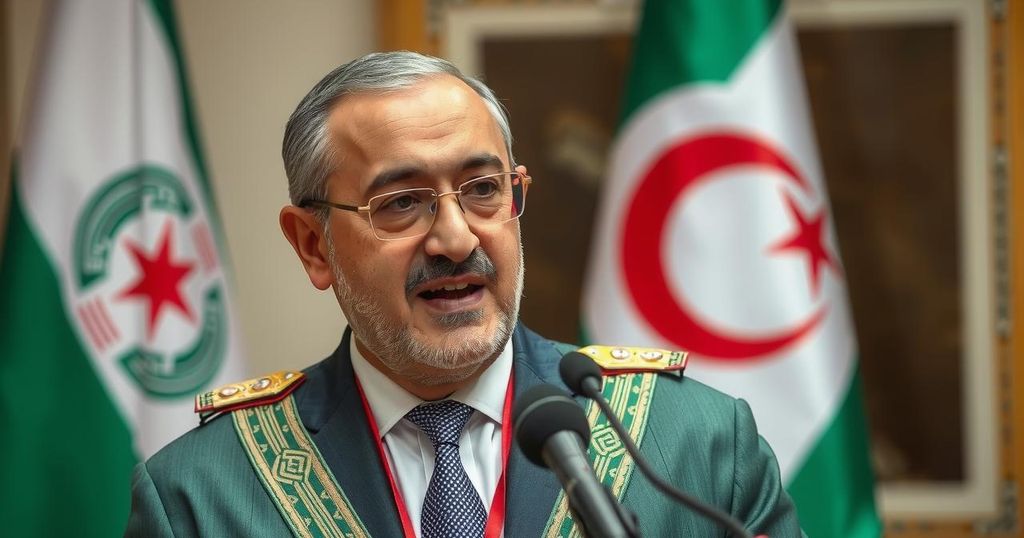Syria’s New Leadership Promises Non-Interference in Lebanon’s Affairs with Jumblatt Meeting
Syria’s new leader Ahmed Al-Sharaa assured Lebanese Druze leader Walid Jumblatt of non-interference in Lebanon during their meeting. Al-Sharaa acknowledged the past negative involvement of Syria in Lebanese affairs and called for a new era of neutrality and support for Lebanon’s stability. Concurrently, the Lebanese judiciary is addressing war crimes accusations against former Syrian officials amid ongoing security challenges.
In recent developments, Ahmed Al-Sharaa, Syria’s new leader, pledged during a meeting with Lebanese Druze leader Walid Jumblatt not to interfere adversely in Lebanon’s affairs. This visit marks a significant shift as it is the first by a Lebanese political figure since the fall of Bashar Assad’s regime. Al-Sharaa characterized the previous Syrian administration’s involvement in Lebanon as destructive, highlighting past assassinations of notable figures.
He expressed Syria’s intention to maintain neutrality regarding Lebanese factions, emphasizing that the new era seeks to foster Lebanon’s economic strength and political stability. Al-Sharaa called on Lebanese citizens to forget the prior negative relations with Syria and urged support for Lebanon’s recovery. He further criticized the international community for its failure to resolve the Syrian crisis over the past fourteen years and stressed the importance of self-determining actions by the people.
Walid Jumblatt praised the victory of the Syrian people over oppression and highlighted the fight against Israeli expansion. He expressed hope for improved diplomatic relations between Lebanon and Syria, including the establishment of embassies and accountability for those who committed crimes against both nations.
In a concerning turn, the Lebanese Public Prosecution received communications regarding the arrest of Maj. Gen. Jamil Al-Hassan, previously the head of Intelligence at the Air Force under Assad’s regime, accused of numerous war crimes. Alongside this, security reports indicated that numerous officers from the Assad regime fled to Lebanon amidst the collapse of the regime, and kidnappings linked to drug trafficking continue to plague the region.
Detainee issues also resurfaced with protests in Beirut demanding the release of individuals imprisoned for supporting the Syrian opposition. Contrastingly, the Lebanese Red Cross reported that several Lebanese citizens were recently returned after being captured by Israeli forces. Israeli military claims include the discovery and destruction of a Hezbollah-related weapons complex.
This article highlights the evolving political landscape in the Middle East, particularly concerning Lebanon and Syria. The recent meeting between Syrian leader Ahmed Al-Sharaa and Lebanese Druze leader Walid Jumblatt signifies a potential thawing of historically strained relations. Notably, Al-Sharaa’s commitment to refraining from negative interference in Lebanese affairs marks a notable shift from previous Syrian policies. The context includes ongoing security issues, war crimes allegations, and the impact of foreign interventions in the region, as well as rising tensions with Israel. The humanitarian concerns regarding detainees and the repercussions of recent military activities add layers of complexity to the geopolitical situation.
The meeting between Ahmed Al-Sharaa and Walid Jumblatt signifies a potential shift in Lebanese-Syrian relations, with promises of non-interference and support for Lebanon’s stability. However, the ongoing challenges of war crimes, refugee movements, and regional tensions with Israel cast a shadow over these developments. As both nations navigate their historical grievances, the prospects for improved relations will depend on accountability for past actions and the establishment of diplomatic engagement. The situation remains fluid, with significant implications for regional stability and humanitarian conditions.
Original Source: www.arabnews.com




Post Comment